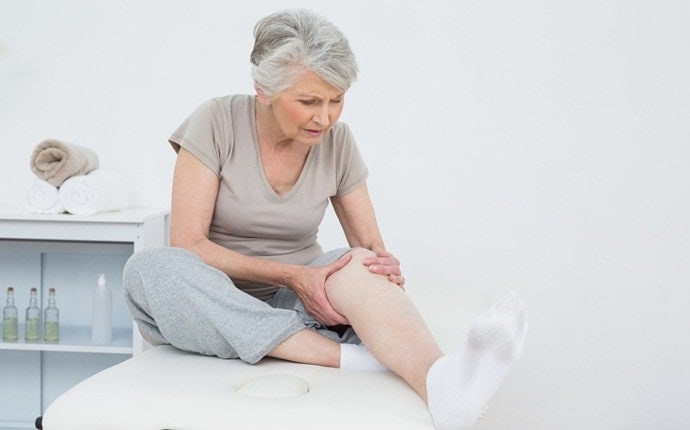Drinking a glass of milk daily is simply not enough to get your much-needed dose of calcium. The role of function in our body goes beyond its ability to promote healthy bones. It also plays a crucial role in improving the blood clotting capacity of the body and ensuring proper growth and contraction of muscle fibers.
There are many food items that contain calcium. Thus, the easiest way to introduce calcium in our systems is through our diet. You can get calcium from items such as dark leafy greens, nuts, cheese, and yogurt to name a few.
There are millions of people who suffer from calcium deficiency due to their body’s inability to absorb the mineral in an efficient manner.
Here are the top signs and symptoms of calcium deficiency that you need to watch out for:
Muscle Cramps
Muscle cramps is the result of low hemoglobin levels, low water intake, and low calcium levels in the bloodstream. Muscle cramps accompanied with pain, especially around the thigh and calf regions is a clear indication that you have low levels of calcium in your system.
In addition, involuntary muscle twitches as well as numbness and tingling sensation in extremities are symptoms caused by low calcium.
If you are suffering from calcium deficiency, you are also most likely to suffer from impaired nervous system. The functionality of nerves is severely affected by low calcium levels in the body.
Poor Bone Density
Calcium is an important nutrient as it plays a role in mineralization, making them compact and strong despite advanced aging. Low calcium level has a direct impact on bone density and strength. If the bones are fragile and weak, they are more likely to suffer from injuries even during mild physical activities.
In women, poor bone density most often translates to increased susceptibility of developing osteoporosis. As the bones are the framework of the bone, poor bone density can result in poor posture, stature, and overall strength.
If the body is not adequately supplied with calcium, the body takes away the bone’s natural reserves to ensure normal functioning. Eventually, the calcium stores are depleted resulting in fragile bones.
Toothache
Up to 99% of calcium present in the body can be found in teeth and bones. If the level of calcium in our system drops too low, you may experience toothache and the development of tooth decay and plaque in the long term. Frequent toothaches are extremely painful and may impair one’s ability to function normally.
Children need to be supplied with adequate amounts of calcium to ensure they reach full potential in growing healthy, white teeth.
Premenstrual Cramps
Women who have low levels of calcium in their bodies endure days of pain as a result of upcoming menstruation. It remains unknown on how calcium affects women’s menstrual cycle. But one thing is clear in that calcium plays a crucial role I regulating the contractions and relaxation of he pelvic muscles.
Besides menstrual cramps, calcium deficiency has also been linked to irregular periods and excessive bleeding. Calcium is integral in the development of the uterus and production of ovarian hormones in women.
Easy Fatigability
Bone and muscle weakness usually happens among men and women with low calcium stores. People suffer from fatigue quite easily and even during rest periods. The lack of calcium or low calcium intake has been linked to sleeplessness, fear, anxiety, and unusual mental derangements that can result in fatigue or overwhelming stress. Regardless of physical activity, people with low calcium levels look frail and pale at most times.
Fatigue is the definitive symptom that women who just delivered have poor calcium stores. It becomes difficult for new mothers to produce milk or breastfeed as a result of low calcium stores. Increased calcium intake is recommended for breastfeeding mothers.
Here are tips to treat calcium deficiency:
- Always make sure to include food items that are rich in calcium to your daily meals. Skim milk, dairy products, dark leafy greens, and fortified cereals are just some of the things that you need to integrate to your diet to ensure you avoid all the problems mentioned earlier.
- You can take a supplement if needed. Before starting on supplementation, make sure to check in with your doctor for the right dosage.
- Apart from calcium, you also need to increased Vitamin D intake. Vitamin D helps in increasing the calcium stores in the body. One easy way to supplement your need for Vitamin D is by going outdoors to enjoy at least 15 minutes of sunlight.
- Magnesium is another mineral that you need to increase if you want to speed up the absorption of calcium in your system. This mineral aids in calcium retention, thus it is wise to up your intake of magnesium-rich foods such as spinach, pumpkin seeds, green beans, whole grains, and sesame seeds.
- Decrease your intake of caffeinated beverages including soda and coffee. They contain high amounts of sodium that interferes with the body’s ability to absorb calcium.
